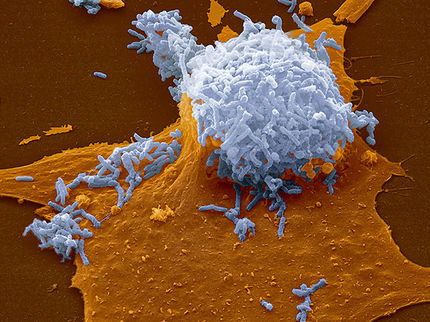Bacteria identified that may lead to inflammatory bowel disease in certain individuals
Certain bacteria that inhabit the intestine provide the environmental trigger that initiates and perpetuates chronic intestinal inflammation in individuals who are genetically susceptible to inflammatory bowel disease (IBD), a study led by Harvard School of Public Health researchers has found.
Inflammatory bowel disease results from a loss of homeostasis, or balance, between the immune system and the microbes that inhabit the intestine. "In this study, we identified two microbes that instigate gut inflammation that leads to inflammatory bowel disease in mice," said lead investigator Wendy Garrett, assistant professor of immunology and infectious diseases at HSPH. "We show using both metagenomic and conventional culture techniques that an individual's genetic background influences what bacteria reside within his or her intestine. Several studies are currently underway examining the intestinal microbial communities of patients with IBD and we are looking forward to exploring the role of the Enterobacteriaceae we have identified in patients with IBD."
Original publication: Wendy S. Garrett, Carey A. Gallini, Tanya Yatsunenko, Monia Michaud, Andrea DuBois, Mary L. Delaney, Shivesh Punit, Maria Karlsson, Lynn Bry, Jonathan N. Glickman, Jeffrey I. Gordon, Andrew B. Onderdonk, and Laurie H. Glimcher; "Enterobacteriaceae Act in Concert with the Gut Microbiota to Induce Spontaneous and Maternally Transmitted Colitis"; Cell Host & Microbe 2010.
Most read news
Topics
Organizations
Other news from the department science

Get the life science industry in your inbox
By submitting this form you agree that LUMITOS AG will send you the newsletter(s) selected above by email. Your data will not be passed on to third parties. Your data will be stored and processed in accordance with our data protection regulations. LUMITOS may contact you by email for the purpose of advertising or market and opinion surveys. You can revoke your consent at any time without giving reasons to LUMITOS AG, Ernst-Augustin-Str. 2, 12489 Berlin, Germany or by e-mail at revoke@lumitos.com with effect for the future. In addition, each email contains a link to unsubscribe from the corresponding newsletter.






















































